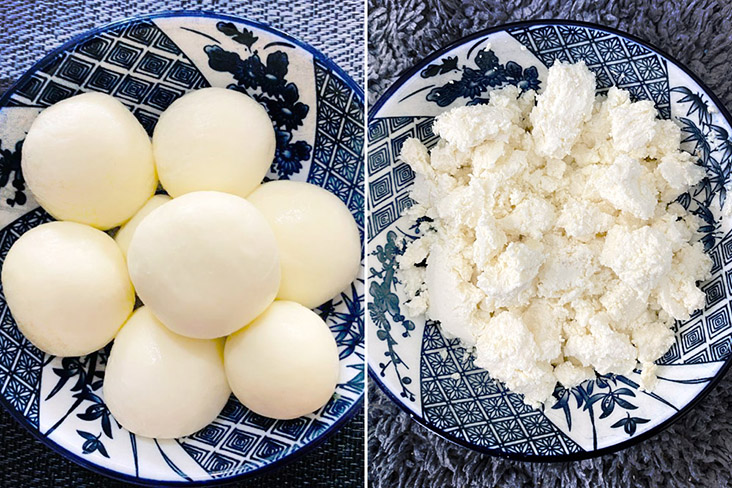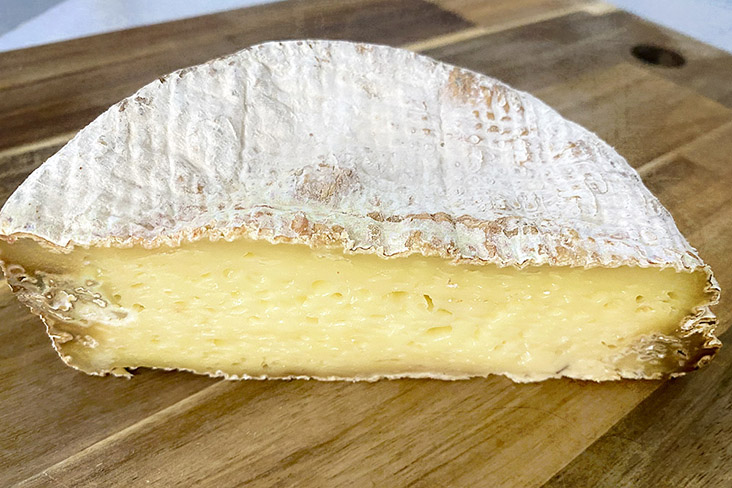KUALA LUMPUR, Feb 16 — Fancy a pungent slab of Limburger? Perhaps a Spicy Cov-philly or a soft, crumbly Bovre? How about a herbed halloumi or a smoked Queso Oaxaca?
These are all cheeses made by D’Artisan Cheese, a wholly Malaysian cheesemaking enterprise run by the husband and wife team of Dexter Lim, 40, and Natalie Chiang, 38.
(In case you’re curious, a Limburger or Herve cheese is a strong-smelling cheese that originates from what is now the French-speaking Belgian province of Liège. Some compare its notorious aroma to that of... feet. It’s an acquired taste.)
The business was officially launched at the end of April last year. The couple ran it from their home in Desa Parkcity, making all their cheeses in situ and sending these to their customers via delivery apps.
Lim recalls, “I’d been making my own yoghurt for the past few years. When I discovered that the easiest type of cheese or labneh is just super-strained, salted yoghurt and that we can actually make our own cheese at home, I just did it!”
Digging deeper, he discovered that cheese has been around for at least 7,200 years, and that it was always done naturally.
Lim says, “Unfortunately in modern society, in the name of efficiency and convenience, most modern cheese makers use lab-isolated cultures, preservatives, additives, stabilisers, etc. We’re not keen on letting our three- and five-year-old kids be exposed to such stuff if we can help it!”

A lot of time and research was required in order for Lim to make cheese the natural way, but persuading Chiang was easier; he had her hooked with a single taste.
She shares, “Ever since he got hooked on cheese-making, he was always occupying my kitchen. But the first cheese that he made, the labneh, was so nice. I’m not a cheese lover, but I granted him approval to use my kitchen ever since!”
Lim had been making cheese for their family’s own personal consumption for a few months, when a few close friends encouraged them to start selling the cheeses that they had made.
Naturally, as with any new startups, there were a couple of hiccups along the way. Lim says, “Mozzarella was the first rennet-ed cheese I attempted to make. But word of warning: mozzarella is not a beginner’s cheese! The first time I attempted it, it didn’t become stretchy but instead became coarse and creamy.”
But all was not lost; Lim would learn that his “mistake” was actually considered full milk ricotta. He says, “So I learned a valuable lesson from that. There are no failures in cheesemaking. Only new names for cheese!”
Ultimately it took many months — “and a lot more milk later,” Lim quips — before D’Artisan Cheese had its first bona fide batch of mozzarella.

He shares, “I have since mastered most of the variations of pasta-filata cheeses — the stretched-curd, pulled-curd and plastic-curd cheeses. Besides mozzarella, these include Burrata, Bocconcini (‘baby’ mozzarella), Nodini (little knotted mozzarella) and string cheese.”
There are also more exotic sounding ones such as Provolone Picante, Queso Oaxaca (Mexican string cheese) and Armenian inspired smoked braided string cheese.
To date, D’Artisan Cheese can produce 81 different types of classic dairy and vegan cheeses from around the world, though many are made to order. All their cheeses are crafted naturally.
Chiang says, “Initially I wasn’t too sure if the cheeses were even up to mark! What with the different colours of natural flora on the cheese vs. the conventional yellow rinded cheeses. Now we basically travel the world through cheese. Our cheese fans get to join us ‘on board.’”

D’Artisan Cheese also produces variations to classic cheeses such as the Bumble Bee (a chocolate cheese with Caerphilly as a base) and Harta (Cheddar infused with chillies and jengkol, a more pungent cousin of petai).
The cheese I’m most curious about is their Gjetost, a creamy Norwegian cheese with a distinctive brown hue from caramelised milk sugars. I first tasted it in Haugesund, served atop crackers and bread.
My host called it brunost or brown cheese, and despite its name, it is used more like a spread. Getting folks to try and use and eat their cheeses, in whatever way that is appropriate, clearly is half the battle here.
Chiang shares, “We feel very supported by our neighbours. They would buy our handmade cheeses instead of the store bought variety when they think of making pizzas or salads. We had a pop-up store at Publika last year; our cheeses were snapped up within a few hours, especially the Asiago, an Italian cheese, and the Caerphilly, a Welsh cheese.”

Many of the less well-known cheeses were bought by expatriates living in Malaysia; they are a major customer base for D’Artisan Cheese. Lim observes that cheese is comfort food for many Westerners living here who miss home.
He shares, “One of our Italian clients said that our mozzarella is as good as the ones his mother used to make, and that our Gor-zila (Gorgonzola picante) is similar to what he ate in Italy! Our humble Farmers’ Cheese reminds a lovely American lady of her grandmother who lives on a farm and made her own cheese.”
These heart-warming stories keep the duo going when things get challenging. Lim says, “Even when it is tiring, when the whole house smells of cheese, when the whole family life revolves around cheese! Even my milk suppliers say that they can smell cheese outside our house!”
The couple used to be avid travellers before borders started closing everywhere last year. Therefore they were quick to recognise that their cheeses were a hit with fellow Malaysians who miss travelling and savouring cheeses as part of their experiences abroad.

“It’s very much like Malaysians like me and nasi lemak. No matter where in the world I travel to, after a couple of days, I will definitely crave for nasi lemak!”
D’Artisan Cheese plans to continue exploring more classic cheeses, albeit all handmade locally in Malaysia. Chiang enthuses, “Did you know that there’s more than 1,000 types of cheeses in the world? We wish to educate Malaysians how to truly enjoy artisan cheese and not fake cheese with numerous food additives passing off as the real thing.”
As with other food-and-beverage (F&B) entrepreneurs, the movement control order (MCO) is never far from their minds. Lim says, “Our business was born during MCO 1.0. It taught us to always expect the unexpected, to stay lean and trim and be ready at all times.”
One way they have tackled this is by creating a Cheese-Of-The-Month Club Membership, where they select four to six of their cheeses every month based on a subscription model (ranging from one to 12 months).
D’Artisan Cheese has also come up with various festive hampers as well as a series of Cheese Boxes including their Artisan Gourmet and Aventuriere platters. Each package contains an assortment of artisan cheeses and other items such as fresh and dried fruits, smoked meats, nuts and crackers.

Lim notes that though they are slightly better prepared for MCO 2.0 as a business, challenges still remain: “The whole world is still grappling with this uncertainty, and probably would still be so for the next one to two years. It’s very much going with the flow, and moving accordingly.”
For now the busy couple have their hands full — with making all manners of wonderful cheeses, of course. Now you know who to turn to if you fancy a slice of Limburger...
D’Artisan Cheese
Web & orders: dartisancheese.com






















